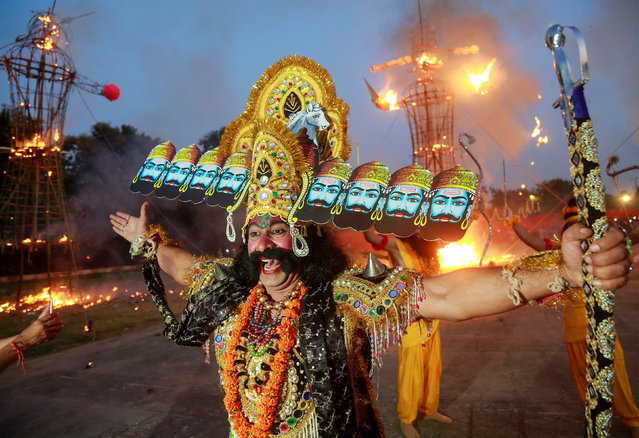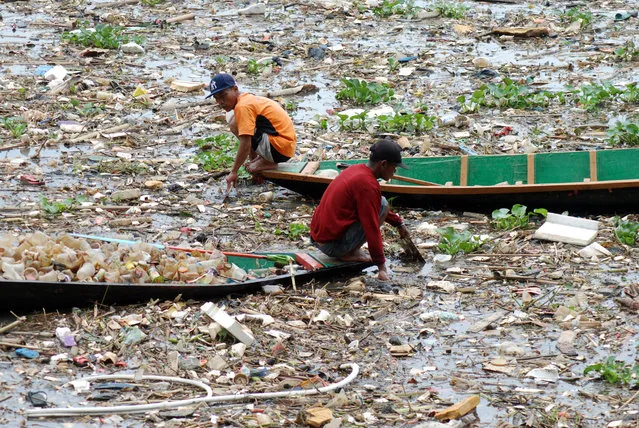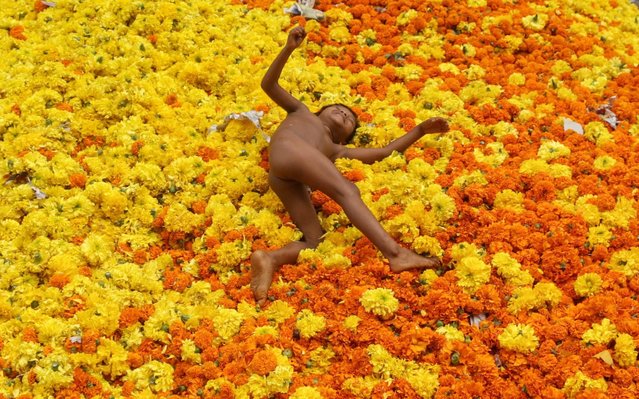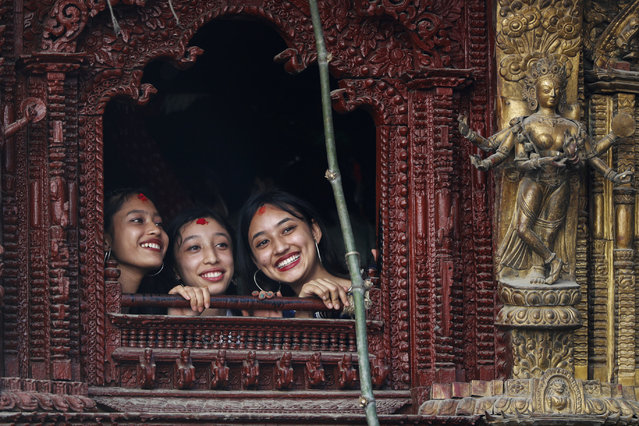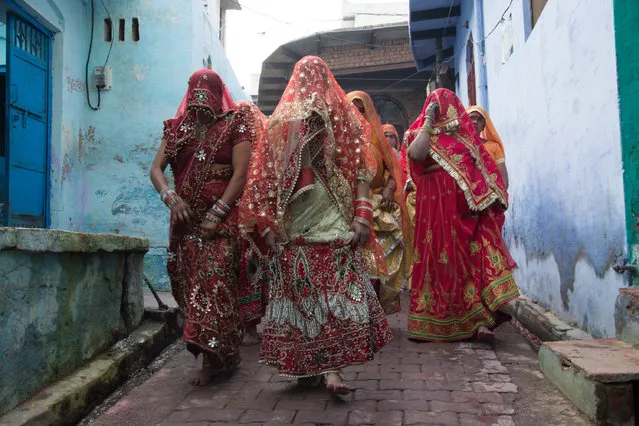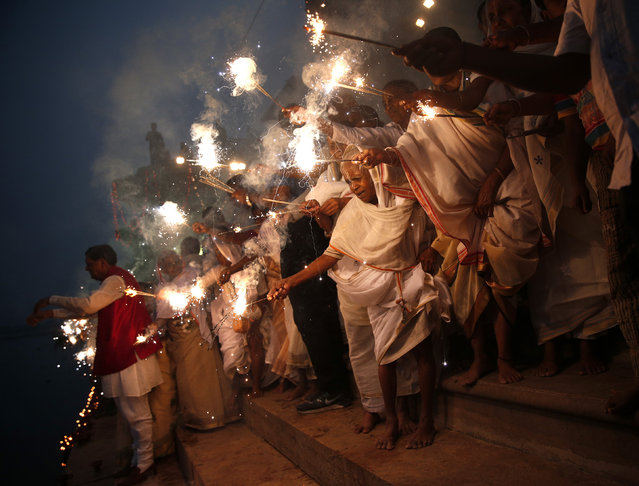
Widows, who have been abandoned by their families, light sparklers after offering prayers on the banks of the river Yamuna as part of Diwali celebrations organised by non-governmental organisation Sulabh International in Vrindavan, Uttar Pradesh October 21, 2014. (Photo by Ahmad Masood/Reuters)
23 Oct 2014 11:07:00,post received
0 comments

